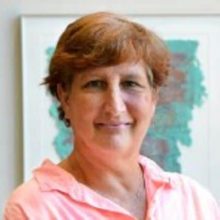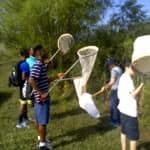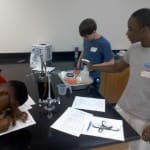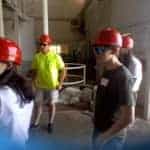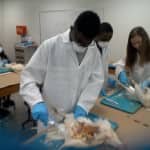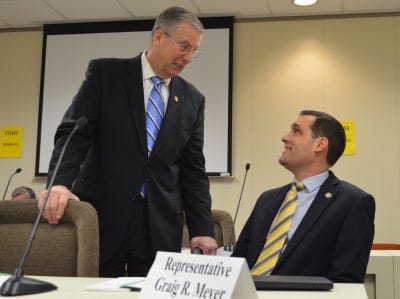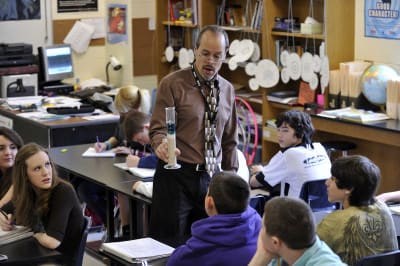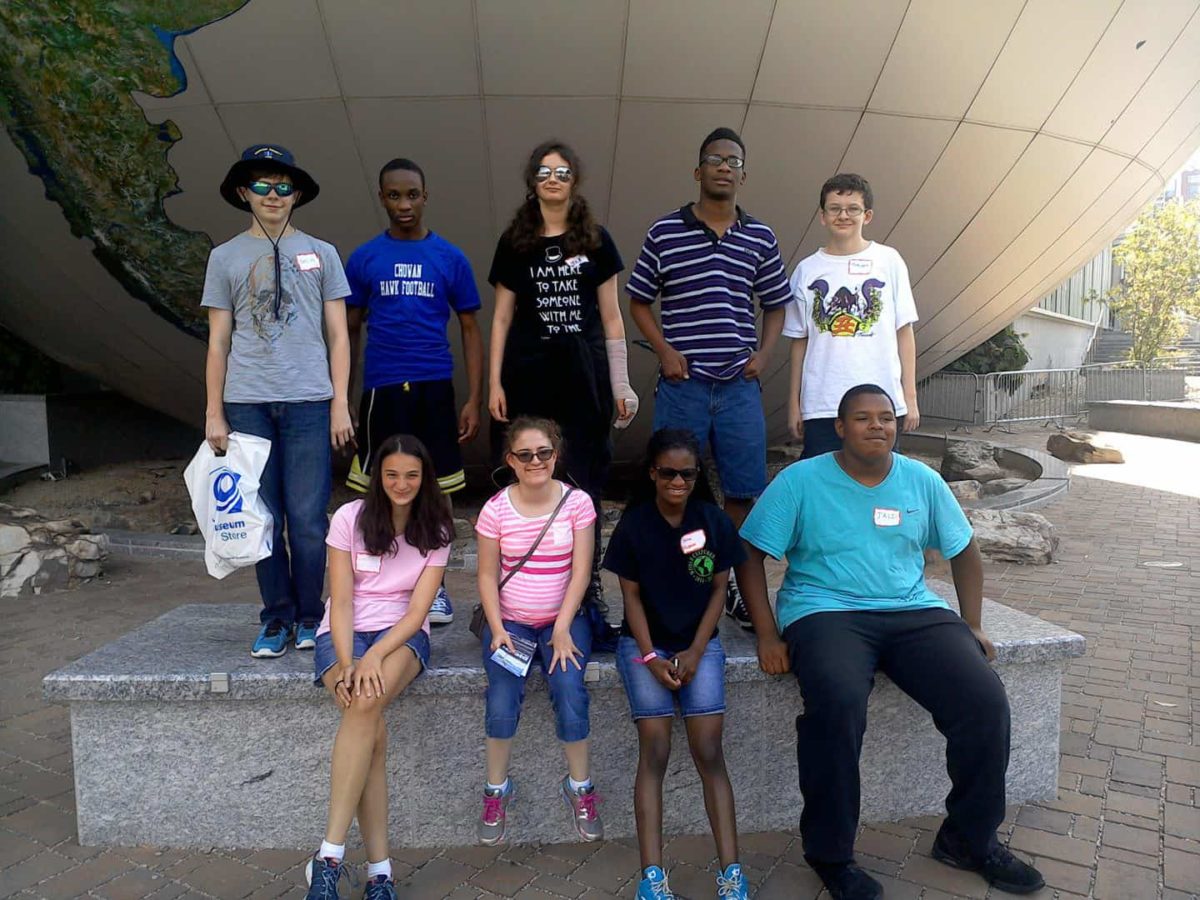

While on a NCSU Sustainable Forestry Teacher’s Academy trip for teachers two summers ago, I was visiting a veneer factory near New Bern, North Carolina. The factory tour guide was explaining to us they brought in staff from Canada because they did not have any local people who were industrial mechanics. The job requires a particular two year degree and none of the local workforce had it. These mechanics can make over $25 hour, and I thought to myself “my students can do this.” A lightbulb went off in my head when I realized my kids could have a chance at careers so much better than the opportunities they are currently being offered.
I teach science to students with disabilities at Dillard Drive Middle School and most of my students head to the occupation course of study (OCS) program in high school.
We need more STEM and vocational programs to help support them to reach their goals, as well as allowing them to consider a wide range of STEM Career opportunities and educational pathways.
These should range from certificate programs to degree programs. Students with disabilities are not always regarded as leaders and learners of STEM although many of our most famous scientists from Einstein to Hawking to Grandin had or have disabilities. The truth is that these students have great abilities and the key is utilizing their strengths to help them meet their goals. Many can be great contributors in STEM fields and are interested in pursuing careers in it.
I wanted to develop a program which could help support their needs and open doors for them.
In addition to myself, the following people volunteered to plan and implement this program: from the Science House, Dr. Jason Painter; from the North Carolina Museum of Natural Sciences, Liani Yiruka, Chris Goforth, Walt Gurley, and Tullie Johnson; from the NC Department of Public Instruction, Joan Thompson; from North Carolina State University, Dannica Wall, Becca Wysocky, and Dr. Ed Sabornie; from Wake Technical Community College, Dr. Danny Monroe; and from Triangle 2020, Brett Brenton.
Catalyst: Creating Opportunities in STEM for Students with Disabilities is a program designed to support high school students with disabilities in learning STEM.
We give the students information on content, skills, careers, post-high school STEM certificate programs, and degree opportunities. The program also provides mentoring from college students with disabilities who act as role models, as well as additional guidance from local university staff and government and industry employees that are in STEM careers. Areas of focus include agriculture, health care, environmental science, energy, citizen science, and engineering.
Catalyst promotes this under-represented population in STEM to be successful in their current science classes, improve their science content and skills, and provide exposure to a variety of STEM Careers. We help them to consider different fields and educational pathways for their future.
Catalyst is for students who are in high school either in the OCS program or in standard classes, and prefer small group individualized instruction to learn about STEM. This program has a week-long summer session, eight Saturday sessions, and one teacher workshop. Catalyst has community support and involvement from a wide variety of government, universities, and industries. Catalyst was funded with a generous grant from the Biogen Foundation.
The summer session went well. It is so nice to see your vision for the kids come true! The events included labs at Wake Tech on physics, geology, and 3D printing; studying embryology, dissecting chickens, and visiting feed plants and dairy farms; participating in citizen science at Prairie Ridge and labs at Museum of Natural Science; health science labs conducted while visiting the Poe Health Center; and learning coding and computer programming. Students learned about a wide range of educational pathways to interesting and high paying careers in STEM from three week certificate programs to college degrees.
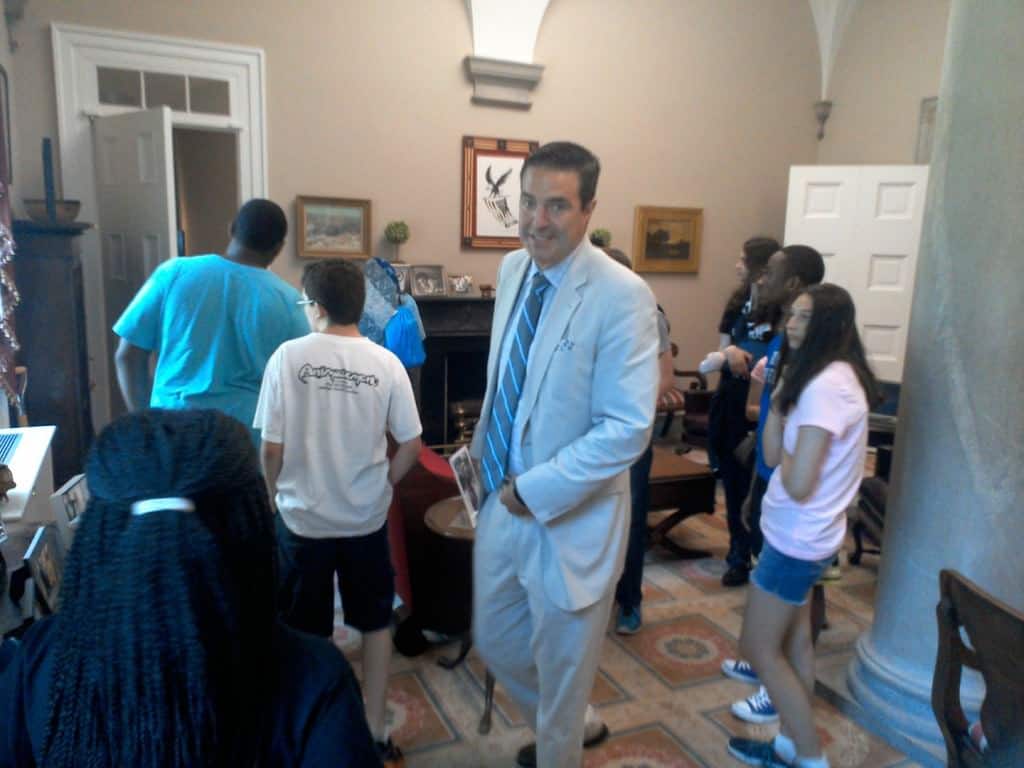

We also spent an hour with Eric Guckian, then the senior education advisor to the Governor. The students learned to advocate for themselves and their educational needs and thought through how the government can help them.
The summer session included 10 students from eight high schools: eight of the students were in OCS and two were in standard education classes. Eight of the students were from WCPSS High Schools, but one came from as far away as New Bern. Students had a wide range of disabilities from autism to visual impairment, but we concentrated on how they could do the work. The students only paid $50 for the week and seven upcoming Saturday sessions. The staff volunteered.
The kids gave the program very high ratings through surveys and comments and some parent comments include:
“This program has given him the motivation to further his education, inquire about career goals and learn there are many ways he can accomplish his dream.”
“Special needs students are accustomed to their glass being half empty and doors of opportunity are typically closed to them. The Catalyst Science Camp was a breath of fresh hope for these students, illuminating many open doors, future possibilities and the fact that the glass is half full.”
“The material is presented at their level without “dummying it down.” Catalyst made him feel more confident in his academia abilities. It showed him that there are more opportunities out there and he is capable of doing more than he realized.”
“This Program gave her a different look on what she will be able do once she graduates from H.S., she is more driven to make sure she gets a Diploma and not a Certificate.
“This program was very beneficial to my son due to it allowing my son to explore all things new to him, things he has never done in his life. My son was so very happy & excited that he cried because he missed everybody that he met on this short journey, which led me to truly believe in this program and why it is so needed and beneficial to every student who qualifies for this program.”
If we connect kids to the resources and opportunities they need, and we provide them with the educational and life skill tools they need, then they can succeed.
More programs which support students with disabilities in STEM are needed.
We hope to expand Catalyst statewide.
